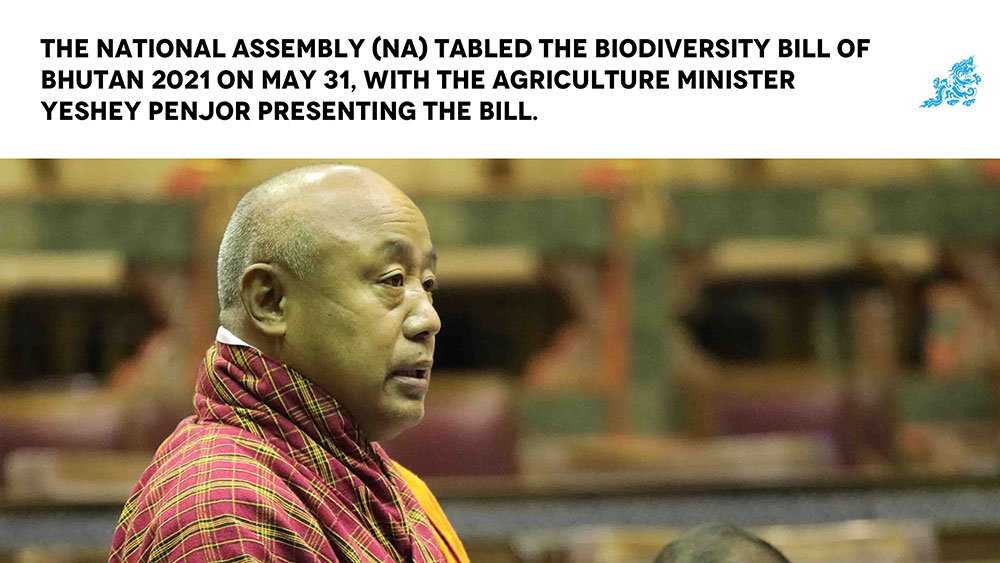The National Assembly (NA) on May 31 tabled the Biodiversity Bill of Bhutan 2021 with the agriculture minister Yeshey Penjor presenting general principles and objectives in the first and second reading of the bill.
Lyonpo said that after the Biodiversity Act of Bhutan was adopted in 2003, Bhutan became a member of 15 international environmental agreements. The Nagoya Protocol, in particular, the lyonpo said, required the country to make major changes in the act.
The Nagoya Protocol on access and benefit-sharing, to which Bhutan became a member in 2011, aims at sharing the benefits arising from the utilisation of genetic resources in a fair and equitable way and encourages access to genetic resources.
He said that the bill should promote conservation and sustainable use of biological resources and applies to access to or utilisation of genetic resources or its derivatives from Bhutan, whether they are accessed in-situ or ex-situ. “It repeals the Biodiversity Act of Bhutan 2003, and subsidiary legislations framed and adopted thereunder, and section 73 of the National Environment Protection Act of Bhutan 2007.”
Upon agreement by the House to move forward with the third reading, the bill was referred to NA’s Environment and Climate Change Committee for further scrutiny.
Bartsham-Shongphu’s NA member, Passang Dorji, suggested the committee could look into the possibility of the bill replacing the highly disputed Mines and Mineral Bill, which the House and National Council couldn’t agree on.
The Opposition Leader Dorji Wangdi said that the bill should be thoroughly reviewed so that biodiversity is not lost at the expense of economic development. He said that there were talks about the government extracting timber to recover from Covid-19 losses.
He said that the bill should also address the concerns related to agarwood. “There is no clear policy on who is allowed to extract the highly-priced wood. There are some complaints that people from outside the country were exploiting the harvest. The wood is also inoculated, which can increase the risk of pest and disease infection.”
Lyonpo Yeshey Penjor said that the ministry was in the process of conducting research and studies on probability of planting high-quality agarwood and extracting agarwood oil, but due to the pandemic, they couldn’t proceed further.
The current agarwood in the south, he said, was of low quality and had no economic benefits. “The forest department has created a technical guideline which looks into inoculation process of agarwood.”
Gangzur-Minjey member, Kinga Penjor, said that the committee should look into the loss of local genetic resources, which could be taking place at unprecedented rates.
“With international focus on the critically endangered and protected species, Bhutan is losing focus on the conservation of local biodiversity. The bill could address such concerns, too,” he said.
By Choki Wangmo
Edited by Jigme Wangchuk


